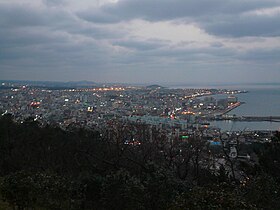 |
| Pole-dancer? |
While Admiral Yi has been portrayed in Korean television productions including this year's fusion martial arts action historical drama 'Gu Family Book' starring Lee Seung-gi (26) and Bae Suzy (18) - which centers around a half-man half-foreign monster searching for an ancient book which contains the secret of how to become fully Korean - many children have realized that the Admiral Yi who appears in the show is not the real one, and that Admiral Yi himself was not, in fact, an actor at all.
Further confusion was caused in March when KBS showed a soap opera that reimagines the Yi story. "Yi Sun-shin: the Best" turned the role of Yi into a woman played by singer and actress IU, 20, and it told the story of how Yi makes it as a big star by overcoming hardship despite her poor background and lack of access to plastic surgery, purely by using strong determination. Some criticized the modern retelling of Yi's story - saying the portrayal of Yi as a fragile whore was contributing to the womanification of Korea, but others said it was basically the same story.
Politicians are growing concerned that as society increasingly values the status of entertainers above all other groups, Korea's considerable achievements in other areas such as constantly fighting off invasions will become devalued, making it difficult to maintain continued public support for military spending aimed at preventing invasions from Japan, China, North Korea and the United States in future.
Privately, government officials also admit seeing the Korean Wave as a way in which the country could exercise so-called 'soft-power' around the world appears to have been contradicted by military simulations which suggest K-pop idols stationed along the North Korean border exercising their soft power would prove to be an ineffective defense against an attack by Pyongyang even if it would be a TV ratings hit. Earlier this month, the Ministry of Defense decided to disband its entertainment core after a disastrous misunderstanding of its purpose led to members being filmed leaving a brothel late at night.
To try and counter declining interest in the military, the Ministry of Defense has now announced a research project aimed at discovering whether there are any records of Admiral Yi singing, or exhibiting other talents such as acting which are increasingly favored in modern Korea. It is believed that if Yi could be presented as an entertainer who also acted to beat off the Japanese, his proper place in history would be assured, and once again children would be reminded of the importance of performing military service for their nation inbetween their stage performances. If evidence can be found, money has already been put aside to alter numerous statues of Admiral Yi erected by previous generations, changing him from a tall imposing figure, into a tall imposing figure with a microphone.
Intriguingly, some old statues of Yi built by previous generations appear to possibly depict him in the traditional act of hanbok pole-dancing, but if this was based on historical records they appear to have been lost or altered.
18-year-old singer and actress Bae Suzy - a former member of girl group 'miss A' - won Mnet 20's Choice Award for 20's Drama Star (Female) for her appearance in 'Gu Family Book', while 26-year-old singer and actor Lee Seung-gi was nominated for 20's Drama Star (Male) and co-star Lee Yu-bi (22), the daughter of 48-year-old singer and actress Kyeon Mi-ri, was nominated for 20's Booming Star even though she just acts. Veteran Korean actor Yoo Dong-geun, 57, appeared as Admiral Yi. Yoo became an activist for the 'Sunfull Movement' against cyberbullying in 2007, and gained combat experience in later that year when he assaulted two producers of the King and I, a historical drama series which aired on SBS starring Oh Man Suk, Koo Hye Sun, Ko Joo Won, and Lee Jin.
During its original broadcast from April to June, the 'Gu Family Book' audience grew from 12.2% in the Seoul National Capital area to 22.9% by its 24th and last episode.
Related Links
Gu Family Book
Misuse of Korean admiral`s name?
'Womanification' of Korea Continues as Admiral Yi Portrayed as a Fragile Whore
You're the Best, Lee Soon-shin
Lee Seung-gi
Yoo Dong-geun
Bae Suzy
IU
Defense Ministry to Audit Entertainment Corps
Admiral Yi
Disclaimer: Please note the links above are generated automatically by our software and may not always be directly related to the news article.






